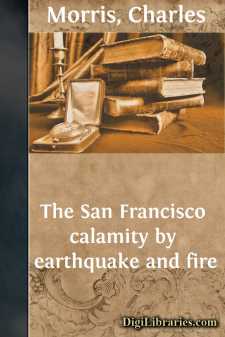History
- Africa 30
- Americas (North Central South West Indies) 50
- Ancient 68
- Asia 58
- Australia & New Zealand 8
- Canada 41
- Caribbean & West Indies 1
- Civilization 20
- Eastern Europe 12
- Europe 310
- Expeditions & Discoveries 60
- General 77
- Historical Geography 1
- Jewish 9
- Latin America 3
- Medieval 8
- Middle East 13
- Military 248
- Revolutionary 8
- Study & Teaching 5
- United States 353
- Western Europe 56
- World 13
History Books
Sort by:
THE ESTRANGER In the effort to dull the edge of his mental anguish by physical exhaustion Catullus had walked far out from the town, through vineyards and fruit-orchards displaying their autumnal stores and clamorous with eager companies of pickers and vintagers. On coming back to the eastern gate he found himself reluctant to pass from the heedless activities of the fields to the bustle of the town...
more...
ACCOUNT OF THE NEW MINISTRY. William began his reign with a proclamation, for confirming all protestants in the offices which they enjoyed on the first day of December; then he chose the members of his council, who were generally staunch to his interest, except the archbishop of Canterbury and the earl of Nottingham, and these were admitted in complaisance to the church-party, which it was not thought...
more...
by:
Emma Helen Blair
Letter from Licentiate Alcaraz to Felipe III Sire: The enclosed papers were taken from the ships that were going last year to Nueva España. Those ships were despatched to make the voyage by way of Yndia; but as the Dutch enemy was lying at the entrances of this bay with his ten warships, it was not possible for the ships to leave, for it would have been only to have fallen, beyond all doubt, into his...
more...
A Dirge Of Victory (Sonnet) Lift not thy trumpet, Victory, to the sky, Nor through battalions nor by batteries blow, But over hollows full of old wire go,Where among dregs of war the long-dead lieWith wasted iron that the guns passed by. When they went eastwards like a tide at flow; There blow thy trumpet that the dead may know,Who waited for thy coming, Victory. It is not we that have...
more...
Let me here relate an incident which should have found a place earlier, but which has been omitted in order that what has gone before might be uninterrupted. On the 16th of the previous July the King made a journey to Fontainebleau, where he remained until the 14th of September. I should suppress the bagatelle which happened on the occasion of this journey, if it did not serve more and more to...
more...
by:
Filson Young
CHAPTER I THE ENCHANTED ISLANDS Columbus did not intend to remain long at San Salvador. His landfall there, although it signified the realisation of one part of his dream, was only the starting-point of his explorations in the New World. Now that he had made good his undertaking to "discover new lands," he had to make good his assurance that they were full of wealth and would swell the revenues...
more...
PREPARATIONS FOR AN OFFENSIVE During the greater part of the winter of 1914-15, the fighting along the western front had been almost constant, but had resulted in little that either side could justly assert to be a success. The rigors inevitable in such a mode of warfare had become almost beyond human endurance, and commanders on both sides looked forward to a more active campaign. An immense amount of...
more...
by:
Charles Morris
CHAPTER I. San Francisco and Its Terrific Earthquake. On the splendid Bay of San Francisco, one of the noblest harbors on the whole vast range of the Pacific Ocean, long has stood, like a Queen of the West on its seven hills, the beautiful city of San Francisco, the youngest and in its own way one of the most beautiful and attractive of the large cities of the United States. Born less than sixty years...
more...
CHARLES F. HORNE Our modern civilization is built up on three great corner-stones, three inestimably valuable heritages from the past. The Græco-Roman civilization gave us our arts and our philosophies, the bases of intellectual power. The Hebrews bequeathed to us the religious idea, which has saved man from despair, has been the potent stimulus to two thousand years of endurance and hope. The Teutons...
more...
INTRODUCTION James Anthony Froude was born at Dartington Rectory, the youngest son of the Archdeacon of Totnes, on April 23, 1818. His father was a clergyman of the old school, as much squire as parson. In the concluding chapter to his History of England, Froude wrote that "for a hundred and forty years after the Revolution of 1688, the Church of England was able to fulfil with moderate success the...
more...











